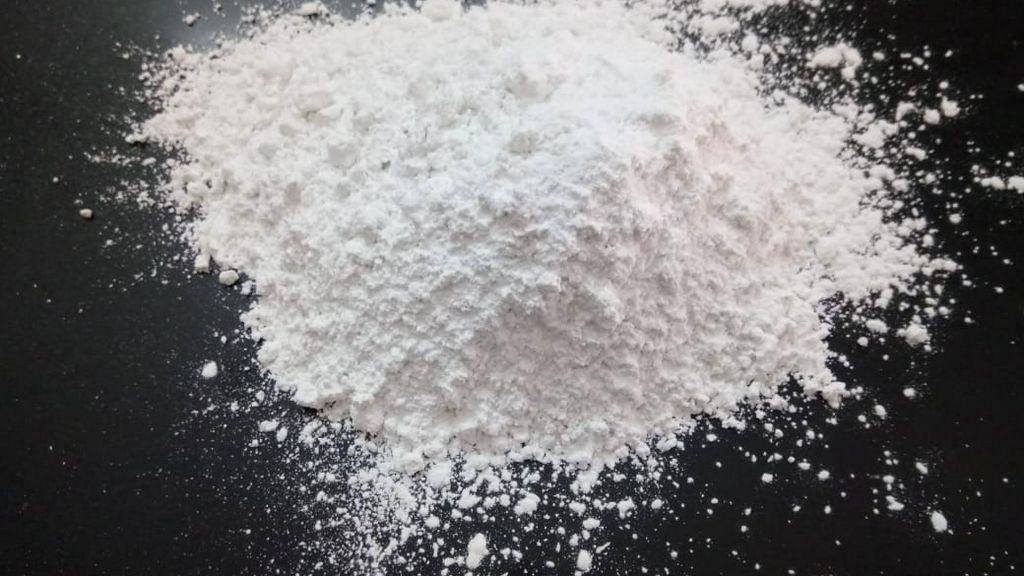

Dolomite is a type of limestone. Dolomite mineral, rich in magnesium and calcium carbonate, also contains a few minerals in small amounts. It is used for acid neutralization in the chemical industry, in stream restoration projects and as a soil conditioner.

Dolomite is a source of magnesium and is used as a feed additive in livestock, a sintering agent in metal processing, and a component in the production of glass, brick, and ceramics.
Dolomite is the primary component of sedimentary rock known as dolostone and metamorphic rock known as dolomitic marble. Dolomite produces a very weak reaction to cold and dilute hydrochloric acid. However, a much stronger acid reaction is observed if the acid is warm or if dolomite is in powder form. Powdered dolomite is easily produced by drawing on the streak plate.
Dolomite is very similar to the mineral calcite. Calcite is composed of calcium carbonate while dolomite is a calcium magnesium carbonate. These two minerals are one of the most common pairs that pose a mineral identification challenge. The best way to distinguish these two minerals from each other is to consider their hardness and acid reactions. The hardness of calcite is 3, the hardness of dolomite is 3,5 to 4. Calcite is strongly reactive with cold hydrochloric acid, while dolomite foams weakly with cold hydrochloric acid.
Dolomite as a mineral does not have much use. However, doloston has a wide range of uses. The most common usage area is the construction sector. It is used as road, base material, aggregate, railway ballast and filling material. However, enterprises that are in search of the production of protective masks, which are in great need recently, use dolomite dust as filtering material. Dolomite powder, which has a long-lasting and strong structure against clogging, is an effective solution in this area.
The European standard EN 13274-8 provides a test method for determining dolomite dust occlusion for respiratory protective devices. In our country, this standard has been published by the Turkish Standards Institute (TSE) with the following title: TS EN 13274-8 Respiratory protective devices - Test methods - Part 8: Dolomite dust clogging test.
Protective masks that pass the dolomite dust test provide full protection for a minimum of 8 hours. Masks that pass this test are labeled with the "D" label, which means that the mask meets the requirements for clogging with dolomite powder.
Our organization provides dolomite dust testing services for protective masks to demanding healthcare organizations and manufacturers, within the framework of national and international standards, with a trained and expert staff and advanced technological equipment, among numerous testing, measurement, analysis and evaluation studies.
To get an appointment, to get more detailed information or to request an evaluation, you can ask us to fill in our form and reach you.